Acknowledgments
Without the support of numerous individuals and institutions, this study could never have been completed; their help is gratefully acknowledged. Carol Gluck gave timely and inspirational support at every stage of the project, from her help in shaping its conceptual categories when it was still a dissertation proposal, to her suggestions for some last-minute improvements to the conclusion when it had become a book. Meticulous readings by Elizabeth Blackmar, Henry Smith, Arthur Tiedemann, Jack Snyder, and especially John Dower helped me rethink and reframe my ideas. Geoffrey Chambers, K vin Shea, Elizabeth Tsunoda, Barbara Sat
vin Shea, Elizabeth Tsunoda, Barbara Sat , Kim Brandt, and Crawford Young were always available to read and discuss drafts. Laura Hein, Yanni Kotsonis, Kren Wigen, Roger Chickering, Sat
, Kim Brandt, and Crawford Young were always available to read and discuss drafts. Laura Hein, Yanni Kotsonis, Kren Wigen, Roger Chickering, Sat Kazuki, Julie Rousseau, Hyung Gu Lynn, Emily Young, and Imura Tetsuo made helpful suggestions on sections of the book. Carol Gluck's graduate seminars at Columbia University provided both insight and enthusiasm in generous measure, as did Carter Eckert's students at Harvard. For sharing with me in Japan their advice, contacts, and considerable private libraries I am indebted to Igarashi Takeshi, Eguchi Keiichi, Okabe Makio, Asada Ky
Kazuki, Julie Rousseau, Hyung Gu Lynn, Emily Young, and Imura Tetsuo made helpful suggestions on sections of the book. Carol Gluck's graduate seminars at Columbia University provided both insight and enthusiasm in generous measure, as did Carter Eckert's students at Harvard. For sharing with me in Japan their advice, contacts, and considerable private libraries I am indebted to Igarashi Takeshi, Eguchi Keiichi, Okabe Makio, Asada Ky ji, Awaya Kentar
ji, Awaya Kentar , Kimijima Kazuhiko, Kobayashi Hideo, Okamoto K
, Kimijima Kazuhiko, Kobayashi Hideo, Okamoto K ichi, and Yanagisawa Asobu. The staffs of the Tokyo University Libraries, the National Diet Library, the Tokyo Chamber of Commerce Library, Waseda Library, and the Kindai Bungakukan provided service which frequently transcended the call of duty. I am particularly grateful to Ikuta Atsuko at the Ie no hikari ky
ichi, and Yanagisawa Asobu. The staffs of the Tokyo University Libraries, the National Diet Library, the Tokyo Chamber of Commerce Library, Waseda Library, and the Kindai Bungakukan provided service which frequently transcended the call of duty. I am particularly grateful to Ikuta Atsuko at the Ie no hikari ky kai Reference Department, Shiraishi Hiroshi at the National Institute for Defense Studies, and Imura Tetsuo at the Institute of Developing Economies. Financial assistance was provided by Columbia University during the fall of 1988, by the Japan Foundation for fourteen months of research in Tokyo from January 1989 through the spring of 1990, and by the Giles Whiting Foundation for dissertation write-up during 19901991. Special thanks are due to the Reischauer institute for offering a congenial environment and the financial support that enabled me to begin to turn a dissertation into a book.
kai Reference Department, Shiraishi Hiroshi at the National Institute for Defense Studies, and Imura Tetsuo at the Institute of Developing Economies. Financial assistance was provided by Columbia University during the fall of 1988, by the Japan Foundation for fourteen months of research in Tokyo from January 1989 through the spring of 1990, and by the Giles Whiting Foundation for dissertation write-up during 19901991. Special thanks are due to the Reischauer institute for offering a congenial environment and the financial support that enabled me to begin to turn a dissertation into a book.
STUDIES OF THE
EAST ASIAN INSTITUTE
SELECTED TITLES
The Origins of the Cultural Revolution, Vol. 3, The Coming of the Cataclysm, 19611966, by Roderick Macfarquhar. New York: Columbia University Press, 1997.
Honorable Merchants: Commerce and Self-Cultivation in Late Imperial China, by Richard Lufrano. Honolulu: University of Hawaii Press, 1997.
Print and Politics: Shibao and the Culture of Reform in Late Qing China, by Joan Judge. Stanford: Stanford University Press, 1996.
Troubled Industries: Confronting Economic Change in Japan, by Robert Uriu. Ithaca: Cornell University Press, 1996.
Tokugawa Confucian Education: The Kangien Academy of Hirose Tans (17821856), by Marleen Kassel. Albany: State University of New York Press, 1996.
(17821856), by Marleen Kassel. Albany: State University of New York Press, 1996.
The Final Confrontation: Japan's Negotiations with the United States, 1941, edited by James W. Morley. New York: Columbia University Press, 1994.
Landownership under Colonial Rule: Korea's Japan Experience, 1900-1935, by Edwin H. Gragert. Honolulu: University of Hawaii Press, 1994.
The Poetry and Poetics of Nishiwaki Junzabur : Modernism in Translation, by Hosea Hirata. Princeton: Princeton University Press, 1993.
: Modernism in Translation, by Hosea Hirata. Princeton: Princeton University Press, 1993.
Japan's Foreign Policy after the Cold War: Coping with Change, edited by Gerald L. Curtis. Armonk, N.Y.: M. E. Sharpe, 1993.
Social Mobility in Contemporary Japan, by Hiroshi Ishida. Stanford: Stanford University Press, 1993.
Schoolhouse Politicians: Locality and State during the Chinese Republic, by Helen Chauncey. Honolulu: University of Hawaii Press, 1992.
Sowing the Seeds of Change: Chinese Students, Japanese Teachers, 1895-1905, by Paula S. Harrell. Stanford: Stanford University Press, 1992.
Suicidal Narrative in Modern Japan: The Case of Dazai Osamu, by Alan Wolfe. Princeton: Princeton University Press, 1990.
The Japanese Way of Politics, by Gerald L. Curtis. New York: Columbia University Press, 1988.
Anvil of Victory: The Communist Revolution in Manchuria, by Steven I. Levine. New York: Columbia University Press, 1987.
Japan's Modern Myths: Ideology in the Late Meiji Period, by Carol Gluck. Princeton: Princeton University Press, 1985.
Japan Erupts: The London Naval Conference and the Manchurian Incident, edited by James W. Morley. New York: Columbia University Press, 1984.
Japan and the Asian Development Bank, by Dennis Yasutomo. New York: Praeger, 1983.
The Fateful Choice: Japan's Advance into Southeast Asia, edited by James W. Morley. New York: Columbia University Press, 1980.
Tanaka Giichi and Japan's China Policy, by William F. Morton. Folkestone, England: Dawson, 1980; New York: St. Martin's Press, 1980.
Japanese International Negotiating Style, by Michael Blaker. New York: Columbia University Press, 1977.
Japan's Foreign Policy, 18681941: A Research Guide, edited by James W. Morley. New York: Columbia University Press, 1974.
The Japanese Oligarchy and the Russo-Japanese War, by Shumpei Okamoto. New York: Columbia University Press, 1970.
The Japanese Imperial Institution in the Tokugawa Period, by Herschel Webb. New York: Columbia University Press, 1968.
Bibliography
Adas, Michael. Machines as the Measure of Men: Science, Technology, and Ideologies of Western Dominance. Ithaca: Cornell University Press, 1989.
AlSayyad, Nezar, ed. Forms of Dominance: On the Architecture and Urbanism of the Colonial Enterprise. Aldershot, England: Avebury, 1992.
Anderson, Benedict. Imagined Communities: Reflections on the Origin and Spread of Nationalism. Rev. ed. London: Verso, 1991.
And Hikotar
Hikotar , ed. Mantetsu: Nihon teikokushugi to Ch
, ed. Mantetsu: Nihon teikokushugi to Ch goku. Ochanomizu shob
goku. Ochanomizu shob , 1965.
, 1965.
__________. Nihonjin no Ch gokukan. Keis
gokukan. Keis shob
shob , 1971.
, 1971.
And Yoshio, ed. Kindai Nihon keizaishi y
Yoshio, ed. Kindai Nihon keizaishi y ran. 2d ed. T
ran. 2d ed. T ky
ky daigaku shuppankai, 1979.
daigaku shuppankai, 1979.
Next page
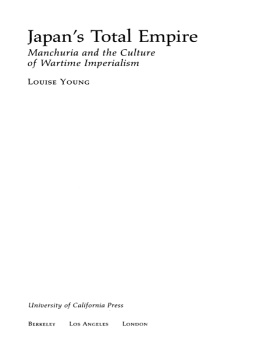

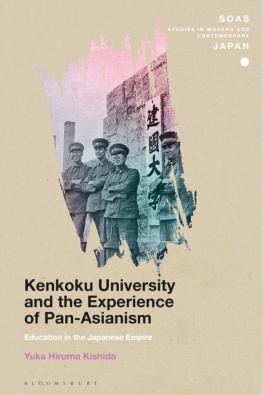
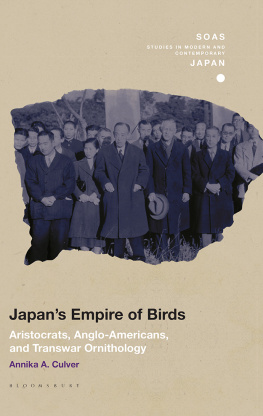
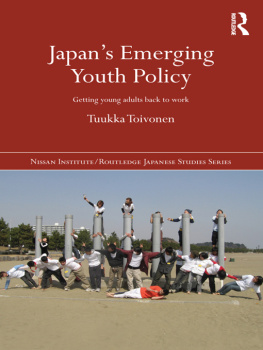
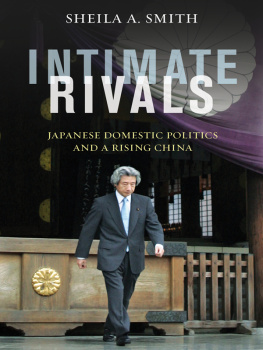
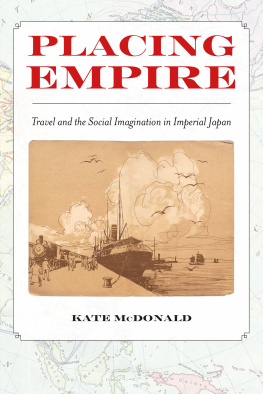
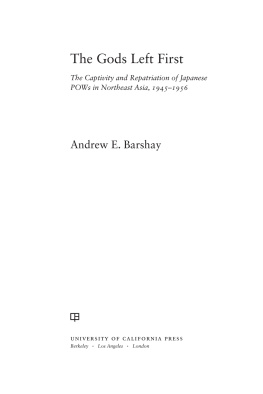
 vin Shea, Elizabeth Tsunoda, Barbara Sat
vin Shea, Elizabeth Tsunoda, Barbara Sat , Kim Brandt, and Crawford Young were always available to read and discuss drafts. Laura Hein, Yanni Kotsonis, Kren Wigen, Roger Chickering, Sat
, Kim Brandt, and Crawford Young were always available to read and discuss drafts. Laura Hein, Yanni Kotsonis, Kren Wigen, Roger Chickering, Sat goku. Ochanomizu shob
goku. Ochanomizu shob gokukan. Keis
gokukan. Keis